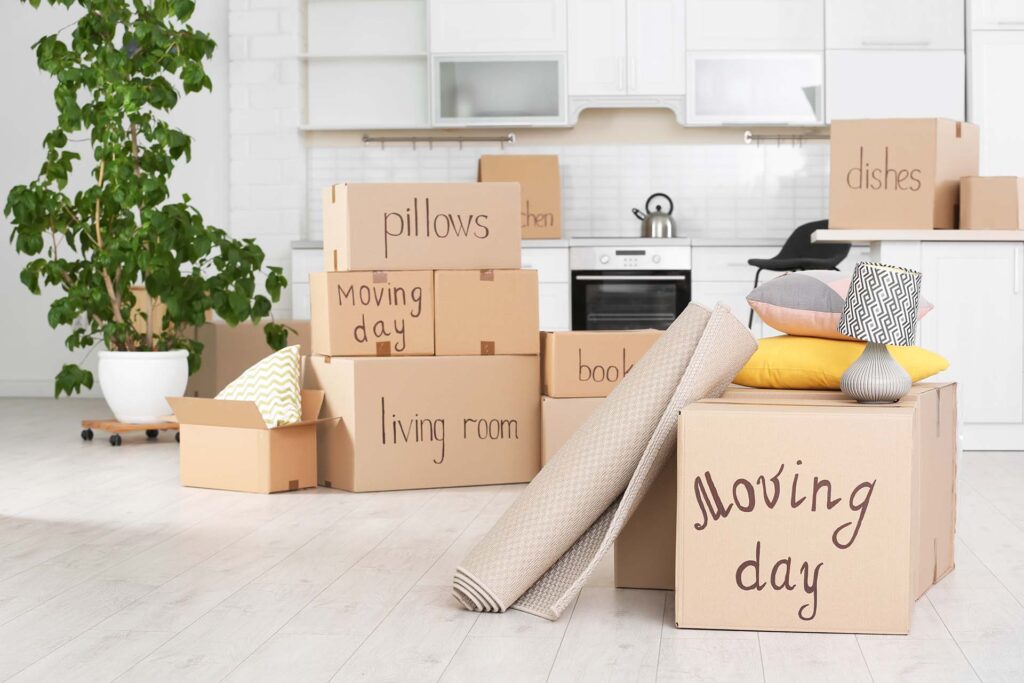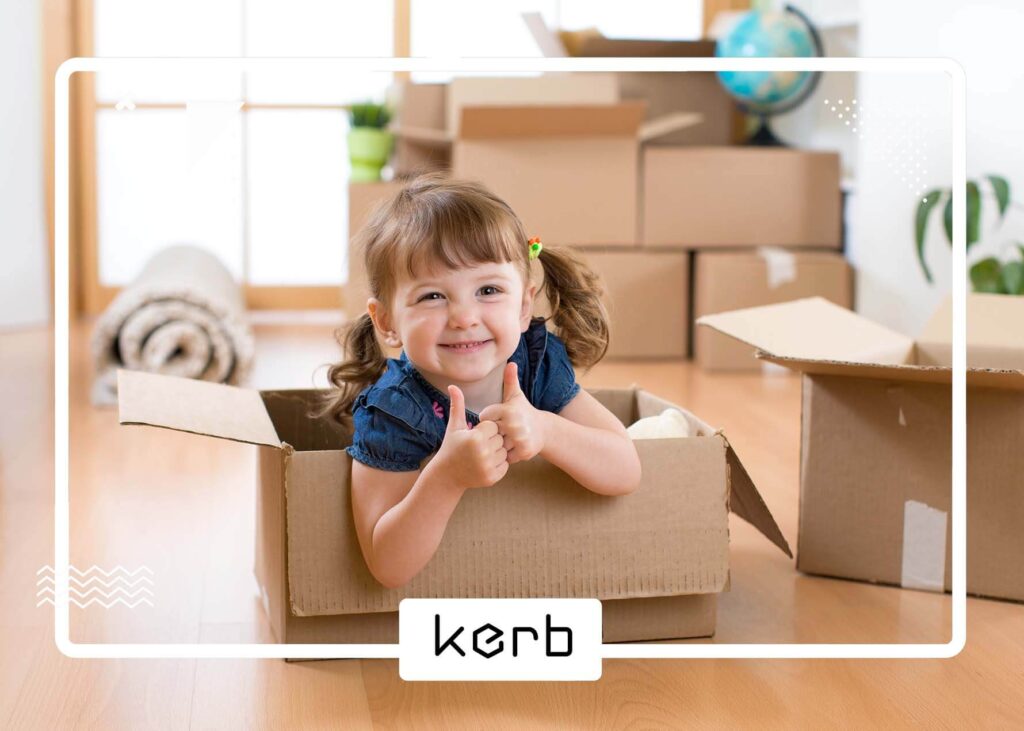Are you planning a relocation soon? If you’re like most people, you are probably worried about creating a moving budget and making sure you can afford to move cross country or locally. Luckily, there are ways to put together an expense plan for moving out that will be practically fool-proof. All you should do is follow these seven steps.

Do Your Research Before Creating a Moving Budget
One of the first steps in creating an expense plan for relocating is making sure you know what you are doing. In other words, you’ll have to do more than write down whatever crosses your mind and estimate the cost after a quick Google search. Besides, there will be so much on your moving to-do list that you can’t leave anything to chance. You’ll have to change your address, perhaps even get a job in another state before moving, and on top of all that, you’ll probably want to throw a moving away party as a way of dealing with moving stress.
We’re trying to say that to ensure everything fits in your moving expenses checklist you’ll have to do some work. This includes estimating the number of belongings you have, gathering quotes from cross-country relocation companies, figuring out which services you need, and more.
How to Make a Moving Budget and Not Run Out of Money?
An essential part of creating a relocation budget is having an extra cushion just in case. In other words, once you crunch down the numbers and figure out exactly how much money you should set aside, do your best to save up at least 10% more. You never know what can happen, and you should be prepared for all scenarios.

Create an Inventory List of Things in Your Home and Storage
Before doing anything else, you should create an inventory list. This means that you should write down every single item in your house or apartment – big or small – that you intend to take with you. If you have a garage or are using storage services, don’t forget to include them in your inventory. This list will help your chosen long distance movers estimate the price, or, if you are planning a DIY move, it will help you figure out how much time and energy the process might take. As a bonus, with this list, it will be easier to decide what things you need for your new apartment.
Decluttering Will Cut Down Your Expenses and Save You Time
Creating an inventory list is an excellent opportunity to get rid of some of your things. All those clothes that you haven’t worn in years? Throw them out! Decorative plates you got from your significant other that look hideous? Out! Your kids’ old toys they’ve outgrown? Out! Once there is a considerable “get rid of” pile, you can decide what to give away, donate, sell, and throw straight into the trash can.
So why is this an important step? Two reasons. Firstly, with fewer things to pack and move, you’ll be saving yourself some time. Secondly, less stuff means a lower quote from interstate movers, i.e., a lower final price. Plus, you can make some extra cash if you organize a garage sale.

Contact Long Distance Moving Companies or Truck Rentals
Now that you know what you’re taking with you, you should make some calls. Contact movers in your area and ask for quotes. This way, you’ll be able to compare the prices and choose the best option. But be careful: never go for the lowest-bidding company, because low prices are usually indicators of moving scams.
If you are planning a DIY move and don’t own a truck, contact several rental companies. However, don’t forget to count the price of gas and the rental insurance. You should also pick a vehicle large enough because otherwise, you’ll have to make several trips and spend even more gas and time.
How High Are Cross Country Moving Costs?
The cost of a long-distance relocation depends on several factors, such as your current and future address and the inventory list. The final bill will also depend on the types of services you choose. If you go for the full long-distance moving service that includes auto shipping, that will likely cost you more than if you drove there yourself. There are also some miscellaneous charges, such as the one for multiple flights of stairs or a long carry.
How Much Do Movers Cost for a Local Move?
When moving locally, the final price is calculated a little differently. You will be charged a rate per hour per mover. The number of staff members needed and how long it takes them to move will depend on your inventory list and the travel distance.
Deciding When to Move is Another Important Step
Believe it or not, the date of your move plays an essential role in the price of services your chosen local or long distance moving company offers. Summers are usually the high season for most removal companies, which means that the prices go up. The same goes for weekends. If you can choose, pick to move in the middle of the week between October and May. That is the best time of the year to move if your finances are tight.

Don’t Forget the Cost of Transportation
A long-distance relocation company will make sure your belongings arrive at your new address. But what about you and your family? Are you planning to drive there or hop on a plane? Either way, these are things you should include in your budget.
Trying to Find a Cheap Flight?
If you plan on flying to your destination, but don’t want to pay a lot for the tickets, check out the video below. You’ll learn some great ways to find cheaper flights.
Count on Everyday Expenses Leading Up to the Relocation Date
Your upcoming relocation is not the only thing you’ll be spending money on in the next few weeks. You will also have to pay your bills, buy groceries, and maintain any other expenses you usually have. Don’t forget to account for those when making your budget.

Include The Costs of Making Your New Place Move-In Ready
This is one of those steps that people often overlook. There is no guarantee that the previous owner or tenant left your future place move-in ready, so you’ll have to take care of that, too. You can either hire a cleaning service or do it yourself. If you decide to clean the place on your own, you’ll have to buy cleaning supplies.
On top of this, if you have a baby or a toddler, your new place will have to be baby-proof. If you are moving with pets, you’ll also need to secure the surroundings for them. Think about your specific situation and try to figure out exactly what your place needs.
Your Old Home Might Eat up Some of Your Savings, Too!
The place where you currently live will also likely need some fixing up. This is especially true if you’re a renter and want to get your deposit back. Much like your future place, you can either do this yourself or hire a professional cleaning service. You might also want to do the following:
- Remove any nails and screws from walls and fill in the holes with spackling paste or wood putty;
- Remove furniture dents from carpets if there are any;
- Replace anything you’ve damaged, broken, or lost while living there, if applicable, per your renting contract.

What About the Miscellaneous Expenses to Include in Your Moving Budget Checklist?
We’ve covered all the major expenses to calculate your financial plan, but the list of budget points is far from over. There are still various additional costs you should count on. We present some of them so you can pick the ones that apply to you and add more to the list if necessary:
- A babysitter or pet sitter for the relocation day – Once professional movers arrive at your place to load your stuff onto the truck, your children and pets should be out of the way. Having them run loose around the house will not only make the movers’ job difficult, but it could be potentially dangerous.
- Extra charges from the relocation company – As we mentioned earlier, your interstate movers might add additional charges. For example, if your street is too narrow for the truck to fit, you will either be charged a long-carry fee or a shuttle fee. If you own something that can’t fit through the doorway and has to be moved through the window, it will come at an extra cost.
- Community parking fees – Depending on where you live and where you’re going, your community’s authorities may demand a special permit and a fee to allow you to park a truck or van in front of your home.
- Packing supplies – If you’re not getting your packing supplies from the relocation company, you’ll need to get some yourself. These will include boxes, packing paper, bubble wrap, and more.
- Realtor – If you’ve hired a real estate agent to help you find a home or sell the old one, don’t forget that there will be a bill to pay for that, too.
- Insurance – Whether you take out renters insurance, insurance for your belongings while in transit, or some other type, don’t forget to count them in.
- Storage – If your future place is not move-in ready, or not big enough for all your things, you’ll probably have to consider getting a temporary storage unit.

How to Move on a Budget – Tips for Reducing Expenses
What is the cheapest way to move out of state? If you are not sure what the answer to that question is, we’ve got some tips! Aside from decluttering your home and choosing the right time of the year, you can do the following:
- Find out where to get free moving boxes in your area. Places like grocery stores, liquor stores, or boutiques might be willing to give some away.
- Use alternative packing materials. Instead of splurging on packing paper, peanuts, and bubble wrap, use what you have at home. Things such as towels, dish rags, newspapers, and socks will do an excellent job of protecting your belongings, so feel free to use them.
- Do as much as you can yourself. Sure, you can get professionals to pack every single item in your home and pay for the full service. Or you can do as much packing as you can on your own and end up with a lower final bill.
- Turn to your friends and family. Our closest circle of people is usually much more willing to help than we tend to assume. Your best friend might be willing to look after your kid or pet and save you the trouble of having to hire a sitter. Someone in your circle might have moved recently and still has spare materials and supplies you can use or even some tips. You’ll never know if you don’t ask.

Ready to Move?
Now that you’ve compiled an extensive moving budget checklist, all that’s left to do is start your process. With your expense checklist, it will be much easier to sort out your relocation process and keep track of your spending and possibly save some money. For the money you do save, you can figure out how much to tip movers after the job is done. Beyond that We wish you luck on your upcoming journey and a great time in your new home.






